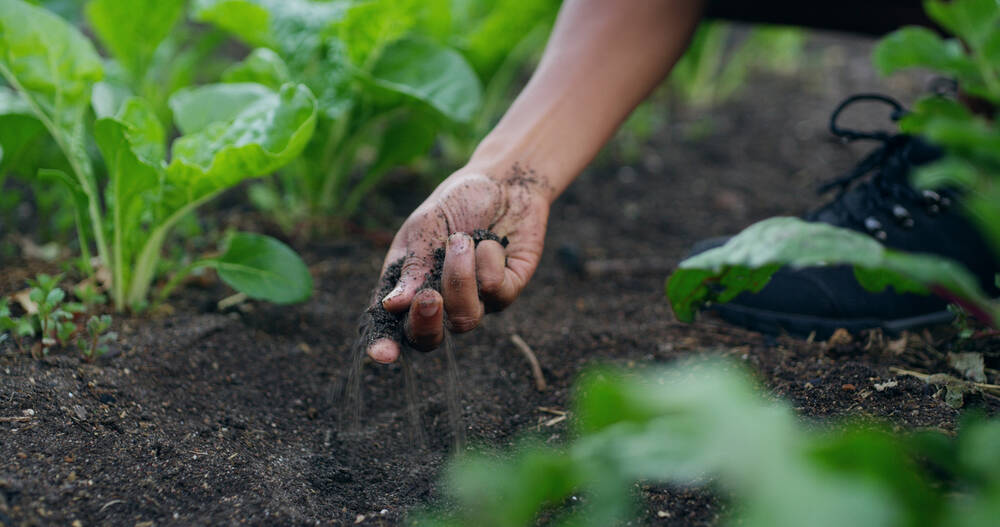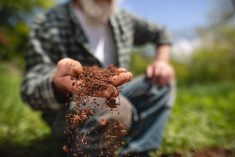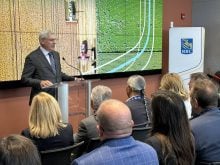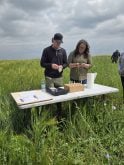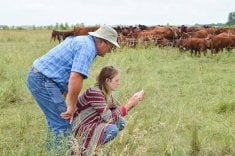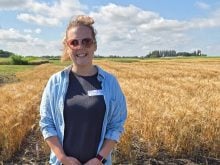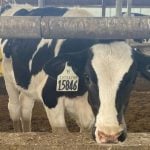A Brandon-based initiative to promote soil health practices among farmers in Western Canada is gaining traction as it enters its second year.
The Russ Edwards School of Agriculture and Environment at Assiniboine College has partnered with key organizations to establish a network of resources aimed at advancing sustainable soil management practices in crop production. The project, supported by the Weston Family Foundation, is designed to help farmers implement practical and effective soil health strategies tailored to their individual operations.
The first year of the project focused on building a network, said Brent VanKoughnet, the project lead. Many organizations with an interest in sustainability have ideas of how to make positive on-farm changes, so they had to be organized in a way that is accessible for producers.
Read Also

Farm Credit Canada forecasts higher farm costs for 2026
Canadian farmers should brace for higher costs in 2026, Farm Credit Canada warns, although there’s some bright financial news for cattle
Why it matters: Individual strategies for soil health improvement are needed, but common tools and resources will help.
Central to the initiative is a new website, soilhealthnetwork.ca, that compiles region-specific soil health information and research.
The Soil Health Action Plan Exercise (SHAPE) is also part of the effort, helping farmers identify and prioritize their soil health goals. In addition, the initiative encourages formation of peer groups in which producers can share successful practices, discuss challenges and collaborate on improving soil management. Volunteers are being sought to host these groups.
The project brings together partners from across Western Canada to share their work on soil health and explore solutions to common challenges. The initiative is a five-year project augmented by input from farmers and partners to refine and improve it.
Progress toward sustainability in the last few years has mostly involved “low-hanging fruit,” VanKoughnet said. The initiative will look to the next steps and will help tailor those steps on a farm-by-farm basis.
“The next things that we do in soil health are really going to be unique to each farm,” he said, and will depend on each farm’s soil, weather patterns, equipment, staff, time and energy.
VanKoughnet, who has a farm near Carman, knows that soil can be different from field to field, so sustainability can’t be viewed through a one-size-fits-all lens.
“Our belief is that we really have to take the lead from the producers if we want to have the greatest influence on the most acres across Western Canada. We’re going to do that by supporting the next logical step on each farm on their terms, rather than thinking there’s some silver bullet.”
The project has focused on connecting farmers with peer groups, including people who have special interests in soil health. These groups have no agenda, policies or products; only ideas to be shared, VanKoughnet said.
“Producers appreciate that they’re with their peers, not with somebody trying to convince them to do something that’s in business interest or policy interest or consumer interest.”
The project provides support to get people together and facilitates discussion.
“We’re really only asking to questions. What have you done recently to advance soil health on your farm, and how’s that worked, and what are you thinking of doing next? We’ve messed around with that approach a little bit and have had really positive responses.”
Working with the Weston Family Foundation has been a boon to the program in many ways, VanKoughnet said. That organization understands soil health is important, and that producers are also independent businesses with competing needs that must also be profitable.
Soil health is an important reason to increase biodiversity on agricultural lands, since it supports carbon sequestration, maintains water quality and makes agro-ecosystems more resilient and better able to adapt to and recover from environmental stress like droughts and floods, said Meghan McDougall, director of conservation at the Weston Family Foundation.
“Although only two years into the program, the team at Assiniboine Community College Foundation are already leading the way toward advancing soil health in Canada,” she said.


